
Newsroom
Workshop on Conservation of Global Endangered Small Cetaceans Convenes in Wuhan
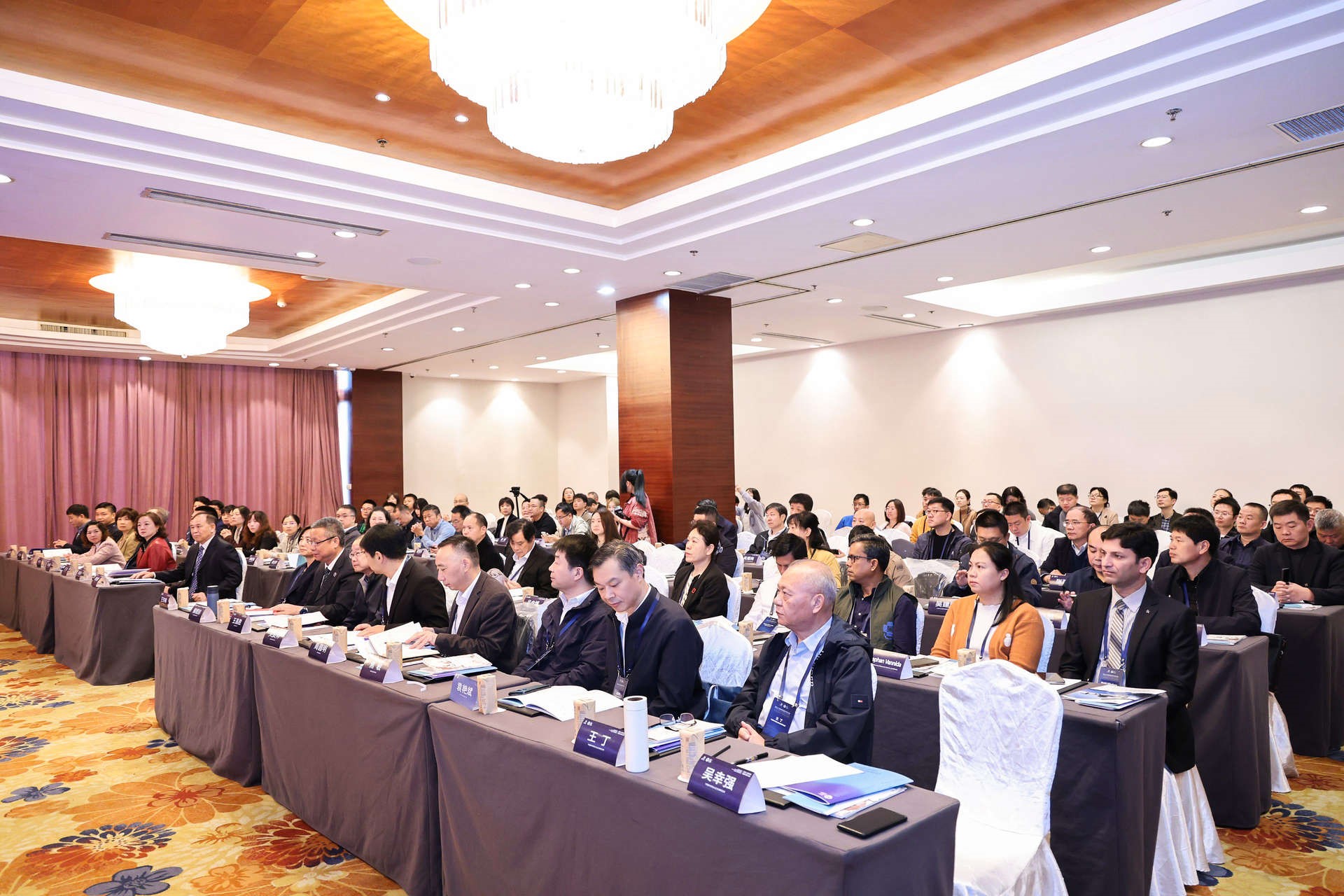
The 2024 Donghu Forum: Workshop on Conservation of Global Endangered Small Cetaceans was held during October 19 to 22, 2024. (Credit: IHB)
From October 19 to 22, 2024, the 2024 Donghu Forum: Workshop on Conservation of Global Endangered Small Cetaceans brought together over 160 experts from across the globe to discuss the protection of small cetaceans, including dolphins and porpoises. Organized by the Hubei Provincial Department of Science and Technology and the Institute of Hydrobiology (IHB) of the Chinese Academy of Sciences, the event was hosted by the Wuhan Baiji Conservation Foundation and supported by the Shenzhen One Planet Foundation, the Changjiang Daily, and other partners.
Experts from countries and regions including Cambodia, Laos, Indonesia, Pakistan, Bangladesh, Peru, the United States, Canada, Chinese mainland and Hong Kong SAR gathered to explore pressing issues related to the conservation of small cetaceans. Under the theme "Living in Harmony with Nature: Helping Dolphins and Porpoises Roam Freely," the workshop addressed challenges, strategies, and collaborative efforts to protect these endangered species.
WANG Dongmei, senior inspector of the Hubei Provincial Department of Science and Technology, opened the forum with a keynote on the importance of cetacean protection in the Yangtze River Basin. She emphasized that safeguarding the habitats of rare porpoises is vital to maintaining ecological balance and biodiversity. "It is our historical responsibility to ensure these species can thrive in the clear waters of the Yangtze," Wang stated.
LI Yanliang, president of the Aquatic Wildlife Conservation Branch of the China Wildlife Conservation Association, presented an overview of conservation efforts for the Yangtze finless porpoise and advocated for expanding international cooperation. "The success of the Yangtze River's environmental protection efforts should serve as a model for broader international collaboration in cetacean conservation," Li noted.
WANG Changsheng, senior inspector of the Hubei Provincial Department of Agriculture and Rural Affairs, highlighted the significance of the timing, with the event coinciding with both the 15th International Freshwater Dolphin Day and the 6th Yangtze River Finless Porpoise Day. "This gathering marks an important moment for experts, government representatives, and conservation organizations to unite in the common cause of cetacean protection," he said.
XIE Shouqi, deputy director of IHB, said that "as a leader in cetacean research and conservation, IHB is committed to driving innovation in the protection of small cetaceans," expressing hope that the forum would strengthen international partnerships in cetacean conservation.
Other notable speakers included NIE Yonggang, professor of the Chinese Society of Zoology's Conservation Biology Branch; Randall Reeves, chair of the IUCN Cetacean Specialist Group; GUAN Wuxiang, vice president of the Wuhan Branch of CAS; and ZHANG Xinqiao, WWF representative.
The event featured a series of keynote addresses, including from WANG Ding, IHB professor; Barbra Taylor, chair of the Society for Marine Mammalogy's Scientific Committee; YANG Guang, Professor at Nanjing Normal University; and Dr. Uzma Khan, WWF's Freshwater Dolphin Initiative Leader for Asia. In addition to these presentations, 11 thematic reports were delivered, and a roundtable discussion was held on topics such as policy support, public participation, and technological advancements in cetacean conservation.
The workshop provided a platform for experts to share the latest monitoring and conservation techniques, explore collaborative frameworks between government agencies, research institutions, and the public, and lay the groundwork for further international cooperation. Participants unanimously agreed on the need to enhance global exchanges and increase efforts to protect endangered cetacean species.
Experts commended China’s significant contributions to cetacean conservation, citing the establishment of national and provincial-level protected areas in the middle and lower Yangtze River, the success of the "Ten-Year Fishing Ban" initiative, and breakthroughs in artificial breeding technologies for the Yangtze finless porpoise.
At the conclusion of the event, the 2024 Global Endangered Small Cetacean Conservation Joint Declaration was issued, and the establishment of the International Freshwater Dolphin Research Center was officially announced.
The forum also included site visits to the IHB's Museum of Hydrobiological Sciences, the Baiji Dolphinarium Exhibition Hall, and two key national nature reserves: the Tian-e-Zhou Oxbow Nature Reserve and the Xinluo Baiji National Nature Reserve in Hubei Province. These visits highlighted the success of China's "Yangtze River Conservation" program and the "Ten-Year Fishing Ban," as well as the critical role played by Chinese scientists in cetacean research and conservation.
Small cetaceans, including dolphins and porpoises, are key indicators of the health of both marine and freshwater ecosystems. The status of these species serves as a barometer for the overall health of the ecosystems in which they live, underscoring the importance of their protection.
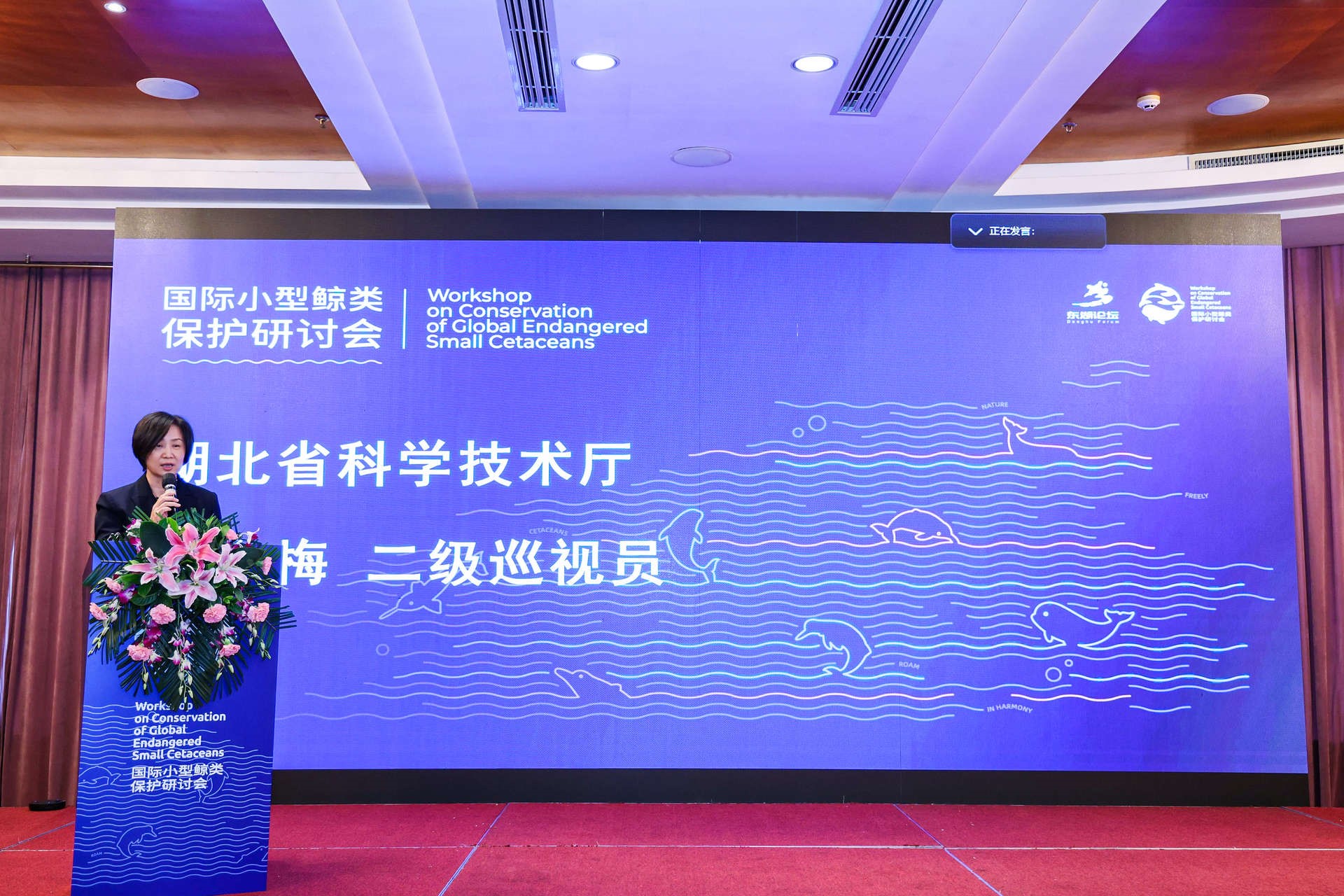
WANG Dongmei, senior inspector of the Hubei Provincial Department of Science and Technology, opened the forum with a keynote speech. (Credit: IHB)
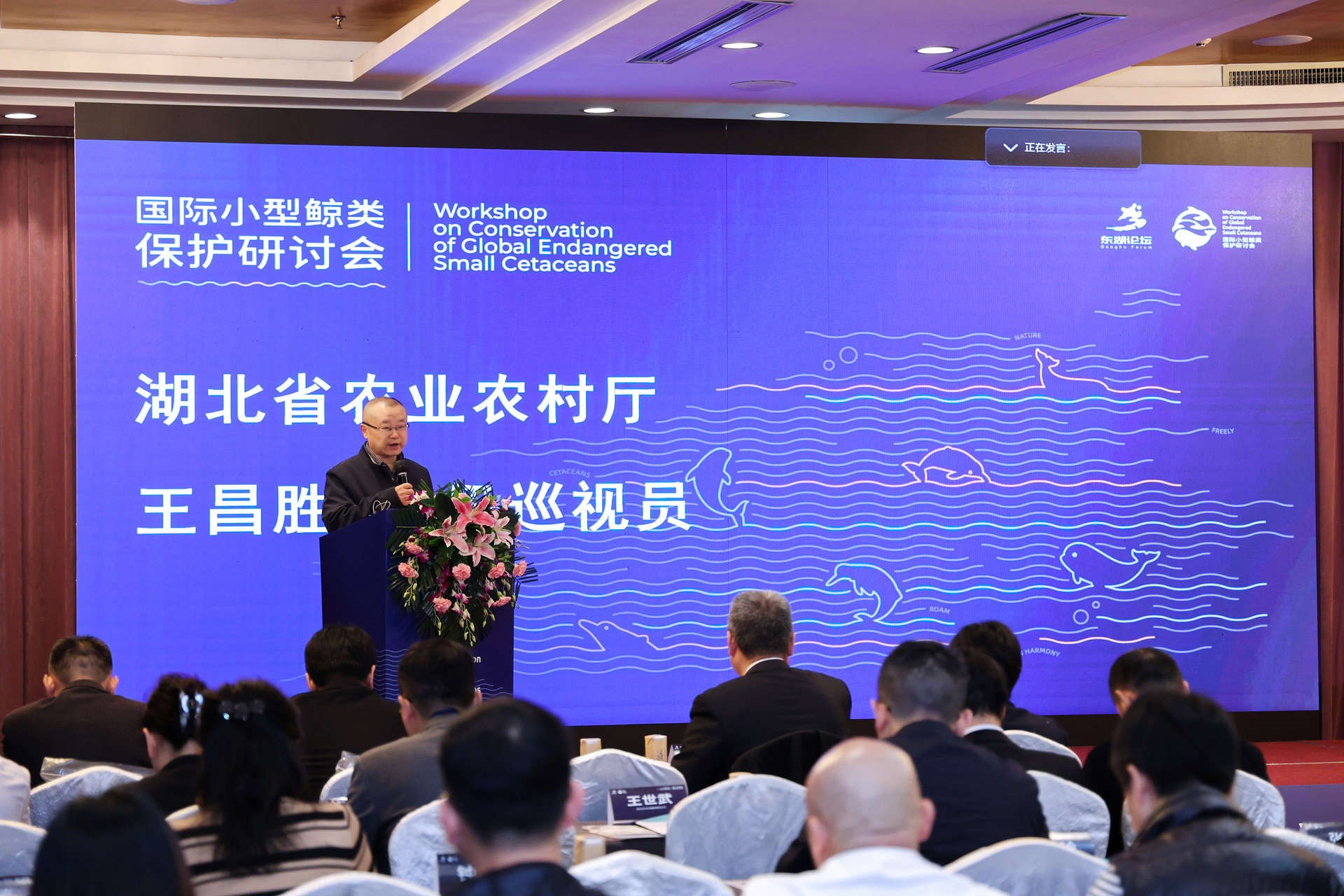
WANG Changsheng, senior inspector of the Hubei Provincial Department of Agriculture and Rural Affairs, addessed at the opening ceremony of the Workshop on Conservation of Global Endangered Small Cetaceans. (Credit: IHB)
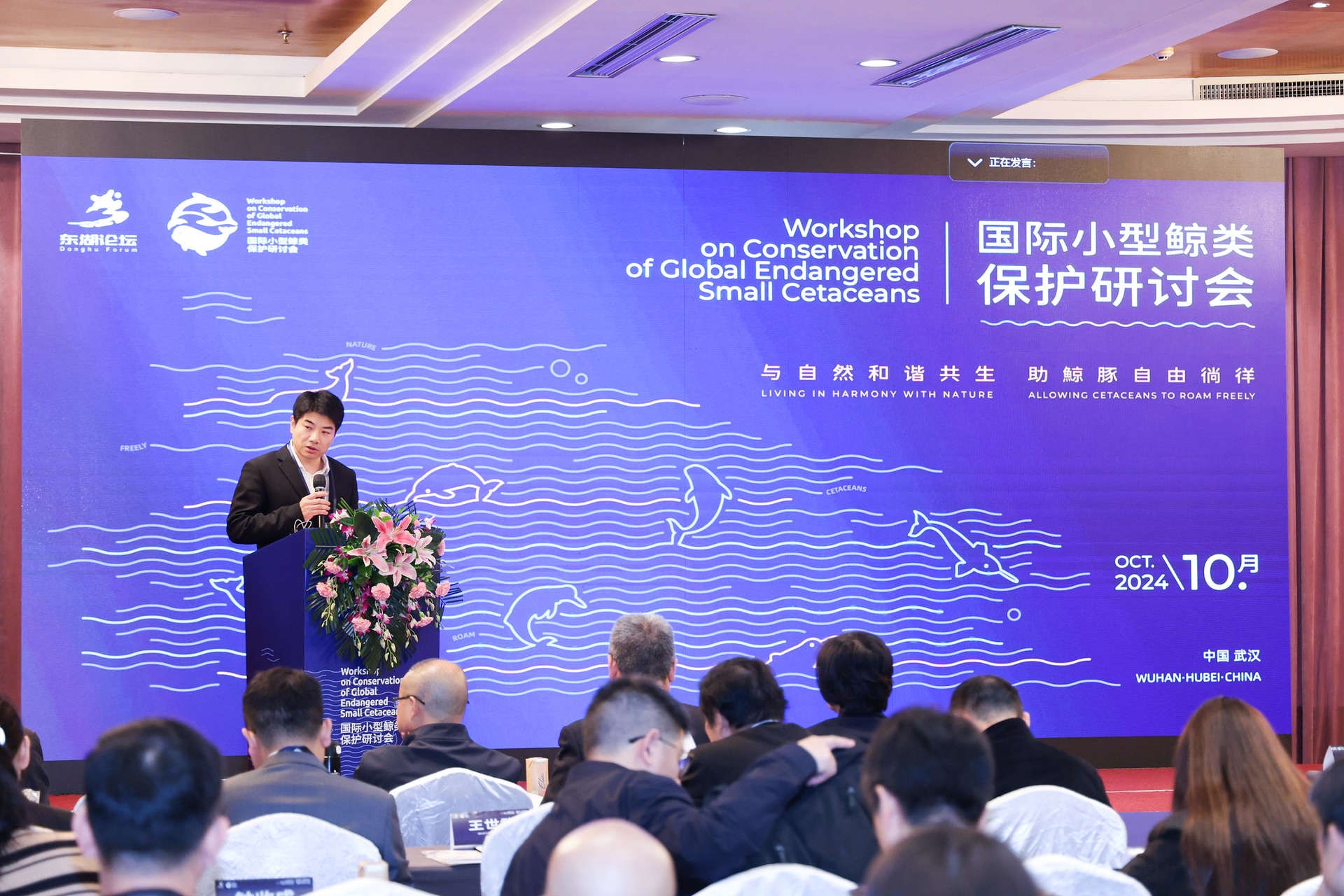
GUAN Wuxiang, vice president of the Wuhan Branch of CAS, addessed at the opening ceremony of the Workshop on Conservation of Global Endangered Small Cetaceans. (Credit: IHB)
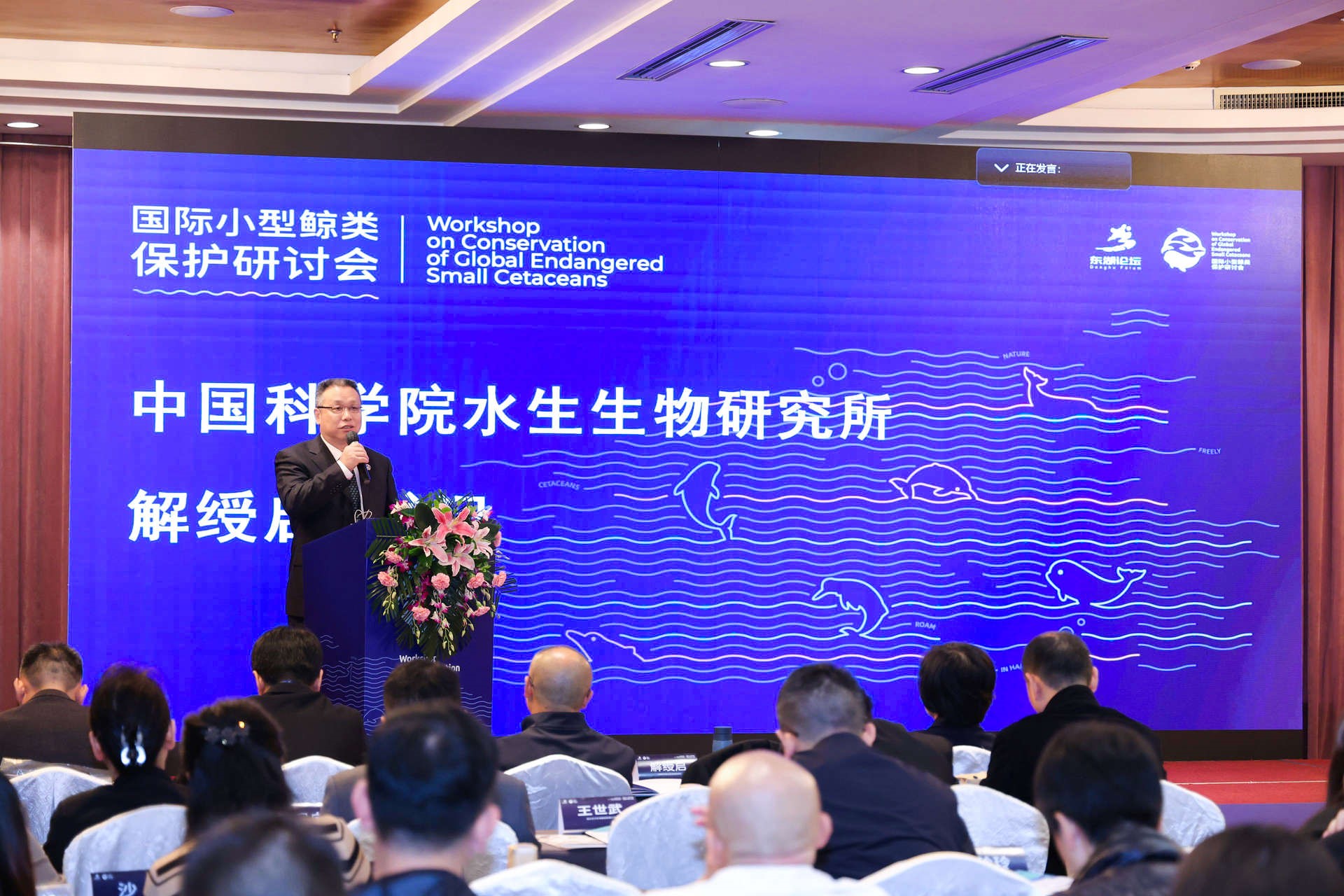
XIE Shouqi, deputy director of IHB, addessed at the opening ceremony of the Workshop on Conservation of Global Endangered Small Cetaceans. (Credit: IHB)
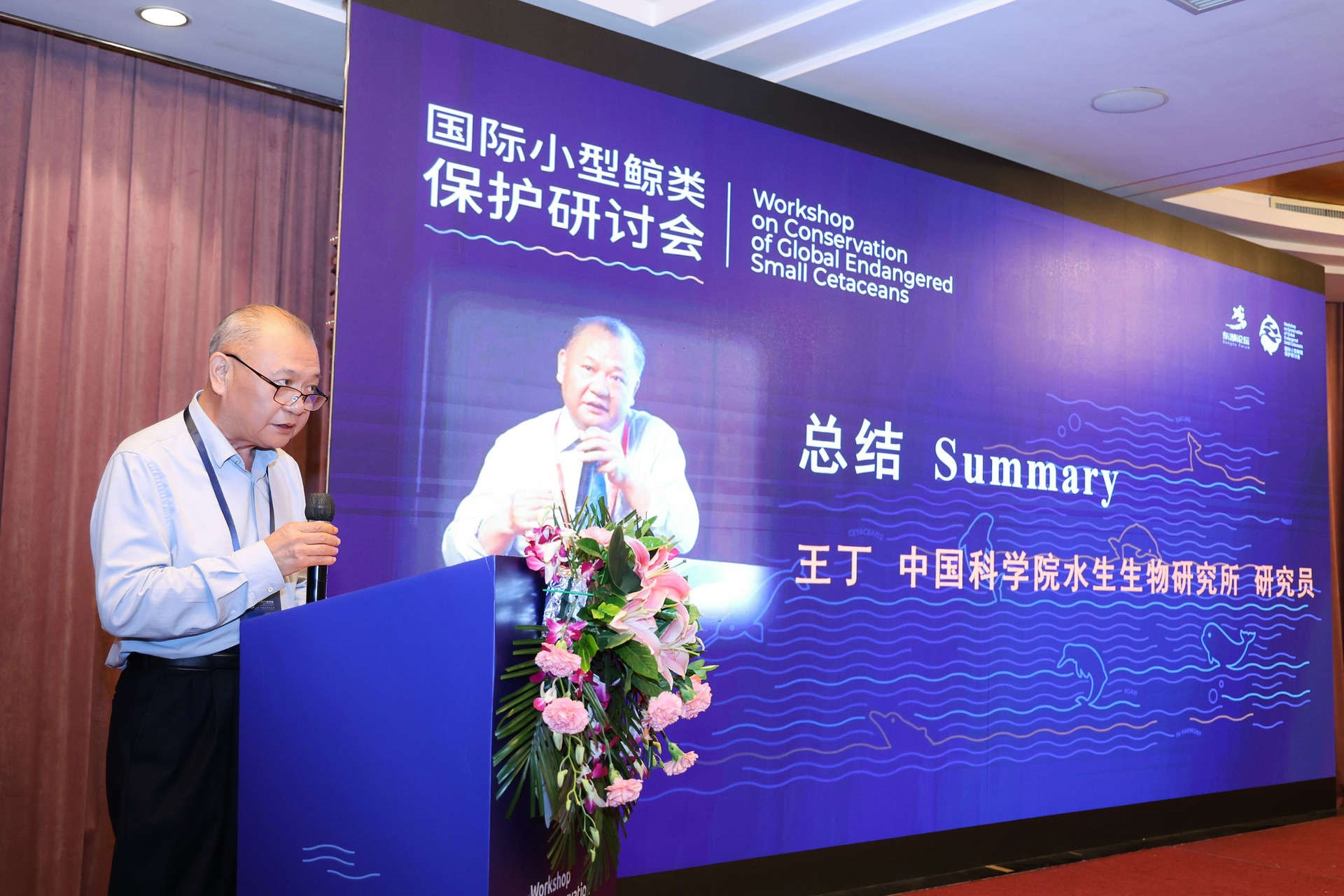
IHB Prof. WANG Ding gave a keynote speech at the Workshop on Conservation of Global Endangered Small Cetaceans. (Credit: IHB)
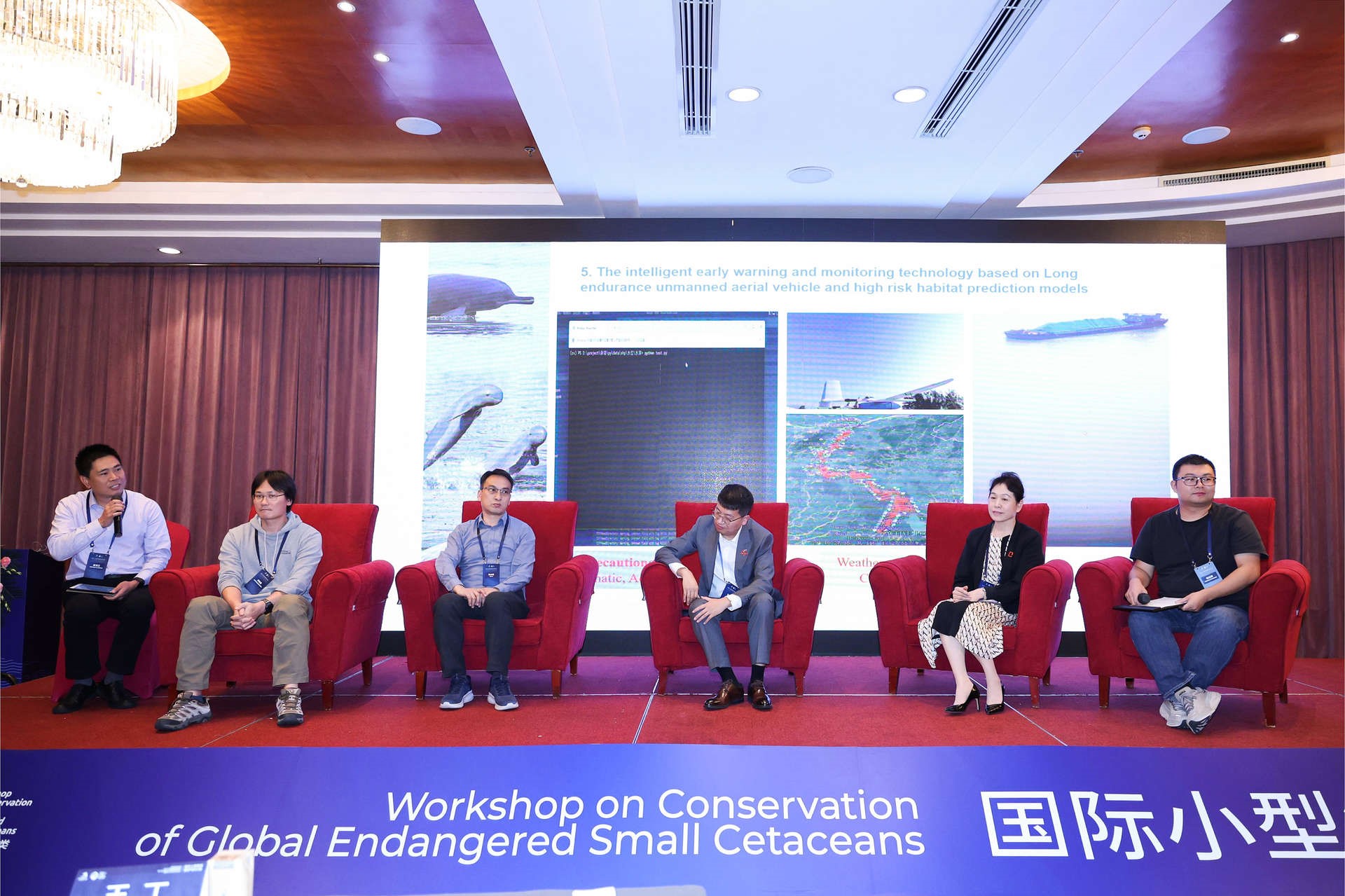
The roundtable discussion (Credit: IHB)